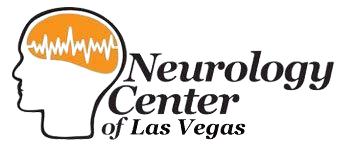Huntington’s Disease

What is Huntington’s Disease?
Huntington’s Disease (HD) results from genetically programmed degeneration of brain cells, called neurons, in certain areas of the brain. This degeneration causes uncontrolled movements, loss of intellectual faculties, and emotional disturbance. HD is a familial disease, passed from parent to child through a mutation in the normal gene. Each child of an HD parent has a 50-50 chance of inheriting the HD gene. If a child does not inherit the HD gene, he or she will not develop the disease and cannot pass it to subsequent generations. A person who inherits the HD gene will sooner or later develop the disease. Whether one child inherits the gene has no bearing on whether others will or will not inherit the gene. Some early symptoms of HD are mood swings, depression, irritability or trouble driving, learning new things, remembering a fact, or making a decision. As the disease progresses, concentration on intellectual tasks becomes increasingly difficult and the patient may have difficulty feeding himself or herself and swallowing. The rate of disease progression and the age of onset vary from person to person. A genetic test, coupled with a complete medical history and neurological and laboratory tests, helps physicians diagnose HD. Presymptomic testing is available for individuals who are at risk for carrying the HD gene. In 1 to 3 percent of individuals with HD, no family history of HD can be found.
Is there any treatment for Huntington’s Disease?
Physicians prescribe a number of medications to help control emotional and movement problems associated with HD. In August 2008 the U.S. Food and Drug Administration approved tetrabenazine to treat Huntington’s chorea (the involuntary writhing movements), making it the first drug approved for use in the United States to treat the disease. Most drugs used to treat the symptoms of HD have side effects such as fatigue, restlessness, or hyperexcitability. It is extremely important for people with HD to maintain physical fitness as much as possible, as individuals who exercise and keep active tend to do better than those who do not.
What is the prognosis for Huntington’s Disease?
At this time, there is no way to stop or reverse the course of HD. Now that the HD gene has been located, investigators are continuing to study the HD gene with an eye toward understanding how it causes disease in the human body.
What research is being done about Huntington’s Disease?
Scientific investigations using electronic and other technologies enable scientists to see what the defective gene does to various structures in the brain and how it affects the body’s chemistry and metabolism. Laboratory animals are being bred in the hope of duplicating the clinical features of HD so that researchers can learn more about the symptoms and progression of HD.
Investigators are implanting fetal tissue in rodents and nonhuman primates with the hope of understanding, restoring, or replacing functions typically lost by neuronal degeneration in individuals with HD. Related areas of investigation include excitotoxicity (over-stimulation of cells by natural chemicals found in the brain), defective energy metabolism (a defect in the mitochondria), oxidative stress (normal metabolic activity in the brain that produces toxic compounds called free radicals), tropic factors (natural chemical substances found in the human body that may protect against cell death).
Concerned that you or a loved one may be suffering from Huntington’s Disease? Contact us today.
